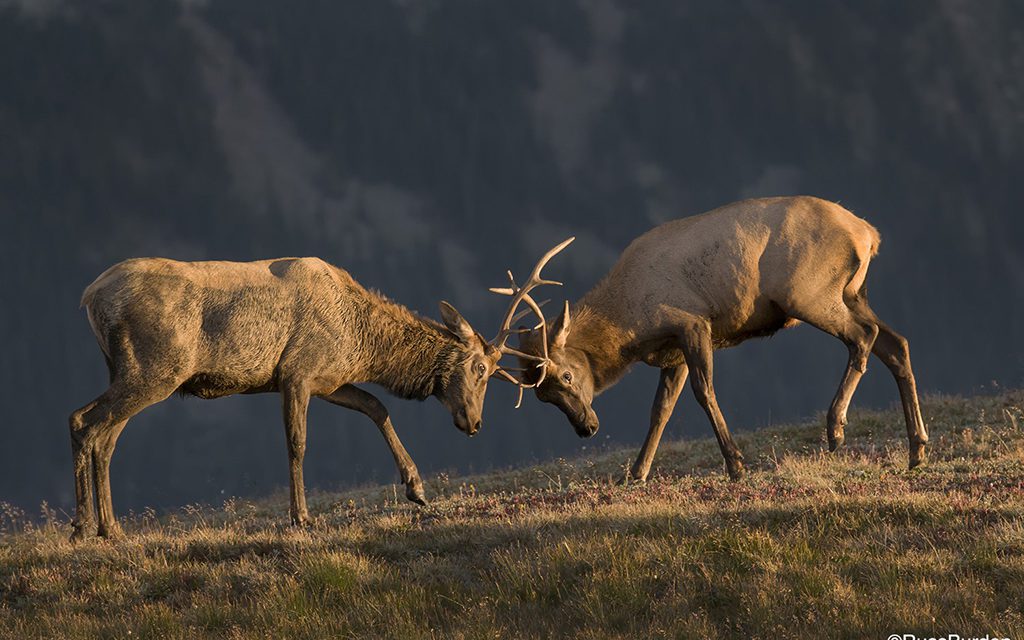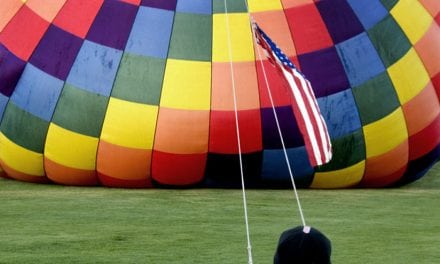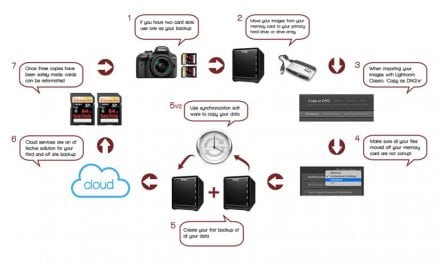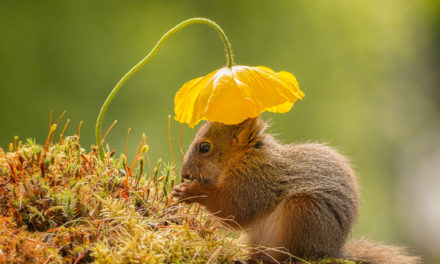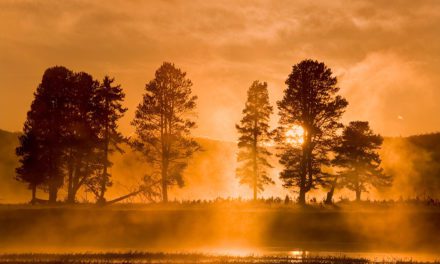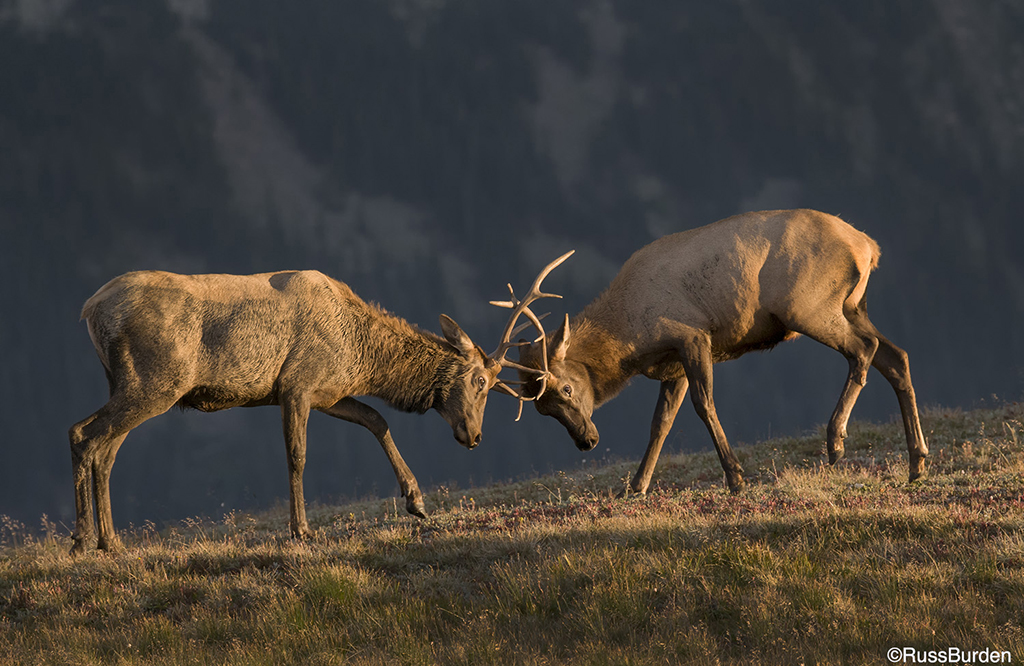
This week’s tip is about creating three dimensionality using light. If you are a portrait or product photographer and use artificial lights, you more than likely know what a GOBO is. If you’re more of an outdoor photographer, you may not know the concept. Studio photographers take pride in being able to control light. They can direct a viewer’s eye to the product or portion of the face using special accessories that channel it to given areas. One of the items that creates this effect is a GOBO. It’s actually a shortened photo word derived from two others: Go Between. A baffle of some sort is angled so the emitted light illuminates the product but not the background. This makes the main subject stand out. It’s a powerful way to unconsciously direct the viewer of the photo to the product.
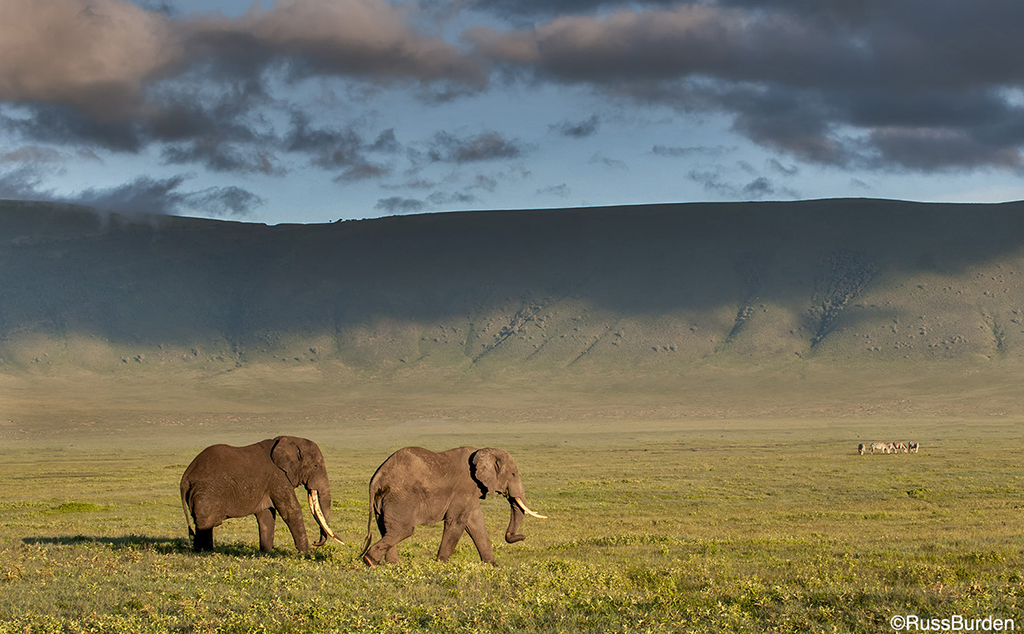
In nature photography, when the sun is the only light source, it’s impossible to force this studio effect. It has to occur naturally. The only way it does is when there are clouds in the sky and a bit of serendipity occurs. A cloud has to cast a shadow across the background yet the sun must fall on the main part of the landscape the photographer wants to emphasize. With wildlife photography, it’s even more of a challenge especially when an animal is on the move. The light has to fall on the subject while the cloud casts a shadow behind it. When it occurs, in that the animal is brighter than the now darker background, the subject “comes forward” and is visually much more powerful. It’s special when it does occur. When I lead my safaris to the Serengeti and I see an opportunity to create three dimensionality using light and clouds, I make sure my participants capture the moment.
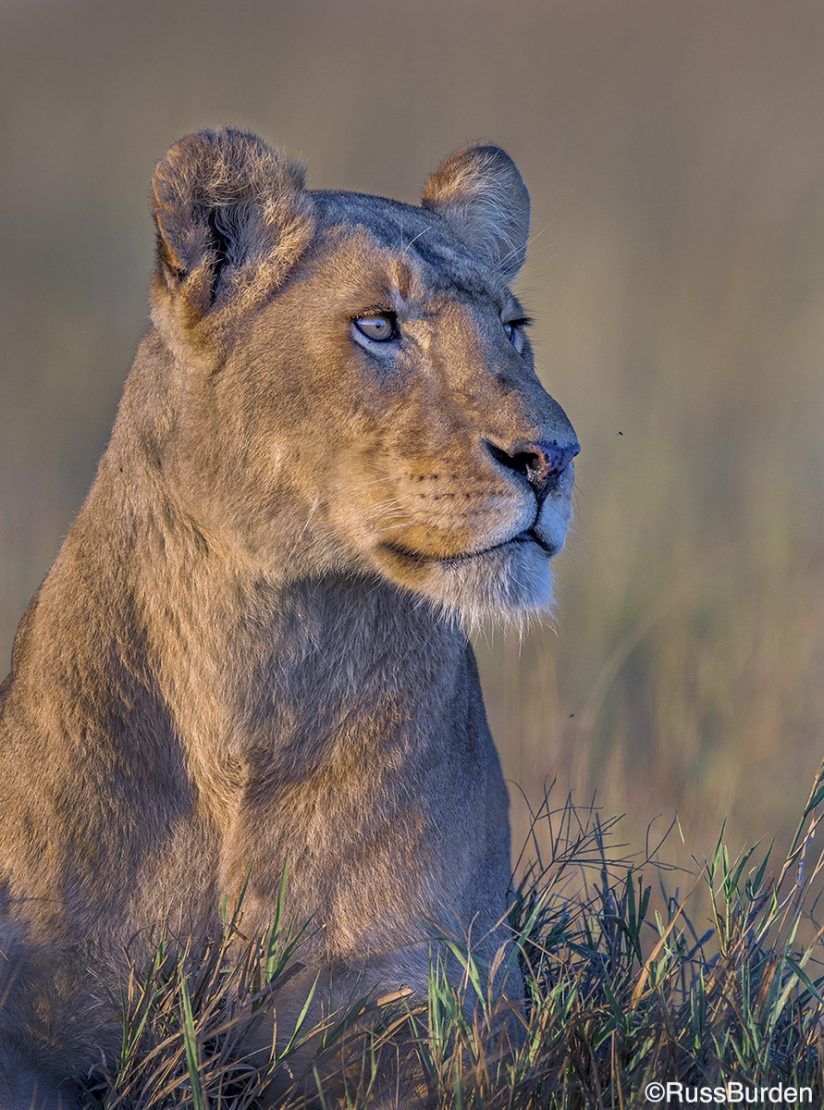
In the image of the battling elk, a small hole opened in the western sky and it was truly a serendipitous moment—one we all dream about. The clouds cast a shadow on the mountain behind the two duelers and the sun couldn’t have lit them any better. Note how they totally stand out from the dark background. In the portrait of the lioness, early light lit her from the side while a soft shadow was cast behind her. The cloud was thin so the background didn’t go dark, but it still allowed her face to come forward in the image.
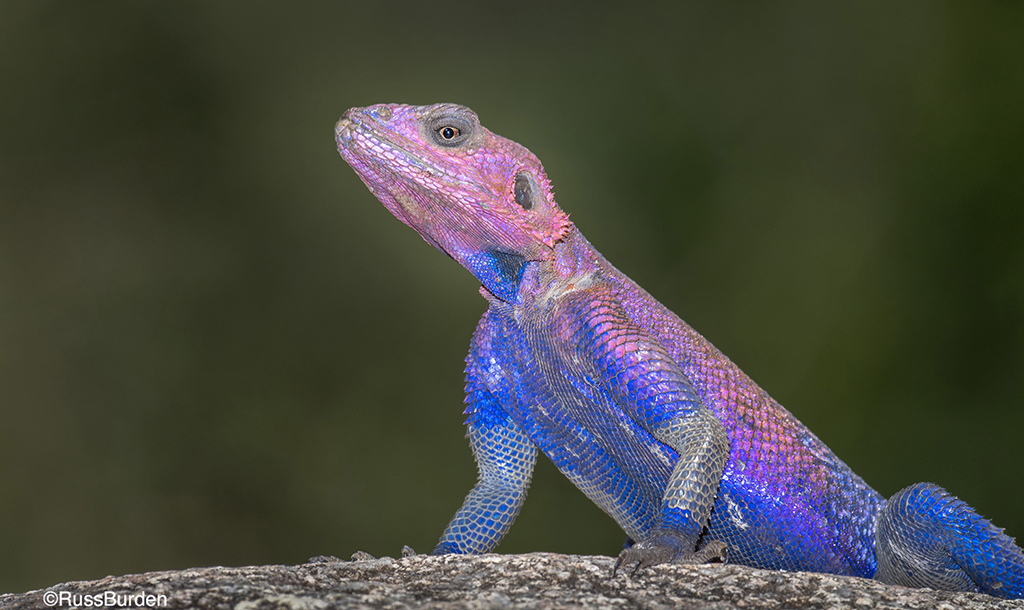
With small subjects, I can create the full effect using flash. The subject needs to be cooperative as I need to photograph it against a dark background and it needs to be in the open. It also must allow me to approach fairly close in that light from a flash falls off quickly. If the background isn’t directly behind the subject, it receives much less light than the subject. In the photo of the agama lizard taken in the Central Serengeti, exactly what I elaborated on above fell into place. The lizards walk the rocks near the visitor center and I had everyone in my group bring a flash. We looked for the ones in the open and used flash. The effect is obvious.
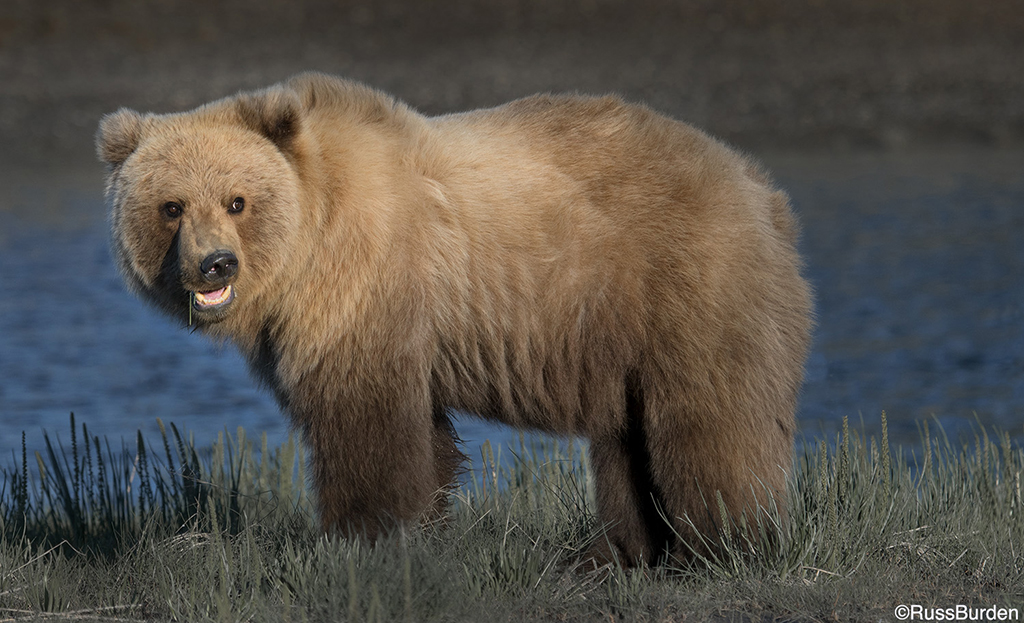
In the photo of the bear and mountain goat, it’s once again obvious how each subject comes forward against the darker backgrounds. This was caused by clouds that acted as GOBOs to darken the background. Again, serendipity needs to be a factor to allow the sun to find the key animal. In the photo of the two elephants with the background zebra, I included it on purpose. While the elephants nor the zebra are offset against a cloud darkened background, the rim of the Ngorongoro Crater and sky were shadowed so they become secondary subjects. As a result, they don’t compete for attention, which easily allows the eye to go to the animals. Be cognizant of how you can create three dimensionality using light and clouds, and when it’s bestowed, take full advantage!
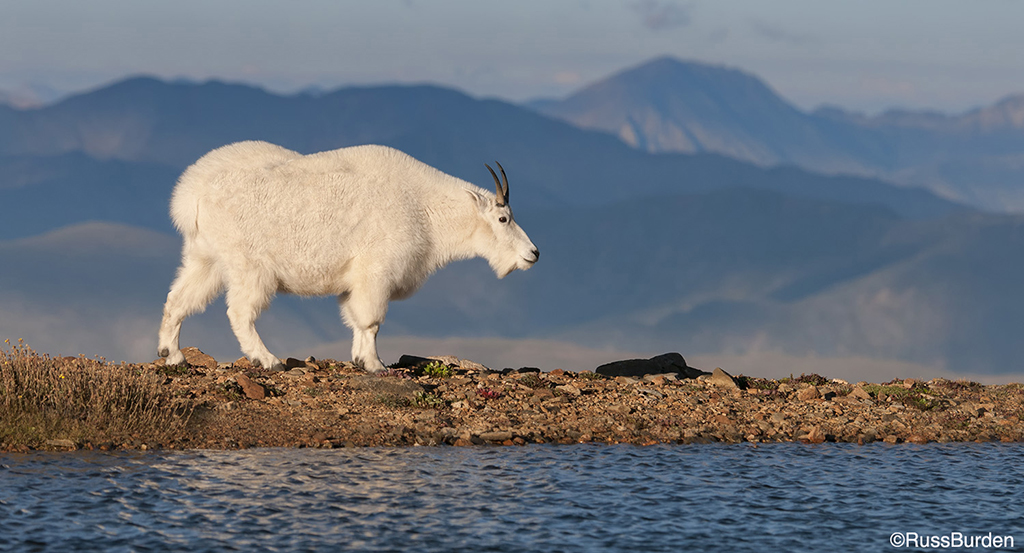
To learn more about this subject, join me on a photo safari to Tanzania. Visit www.russburdenphotography.com to get more information.
The post Create Three Dimensionality Using Light appeared first on Outdoor Photographer.

